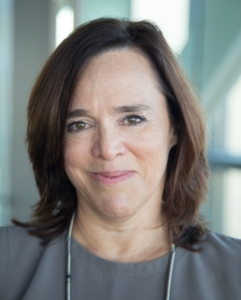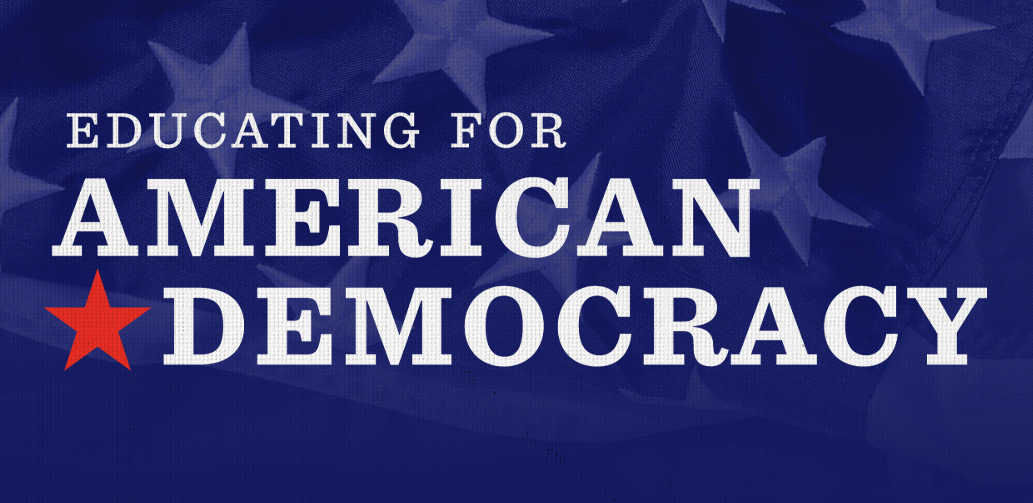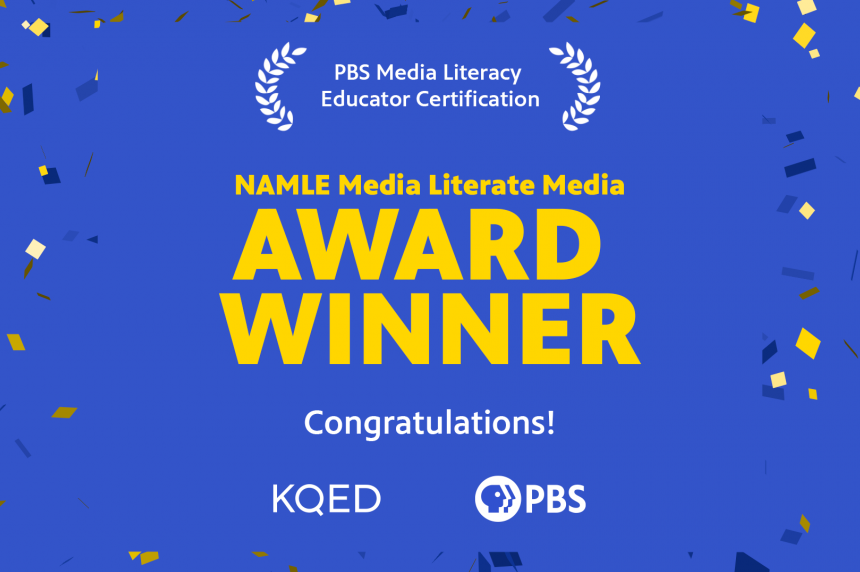
Civic knowledge, understanding, and discourse across the US are in crisis. Explanations and accusations abound about the origins of the problem, but there is consensus on one essential point: Generations of students have not received the education in history and civics needed to prepare them for informed and engaged citizenship.
As part of Koret’s core commitment to K–12 education, the new Civic Learning Initiative will fund four grantees: Commonsense Media, the Commonwealth Club, iCivics, and KQED. Louise Dubé, the executive director of iCivics, recently talked with us about the state of civic education and the Educating for American Democracy (EAD) framework that the organization is leading to provide teachers with the tools to encourage students to become engaged citizens.
KF: How do you describe the perspective of EAD in providing school districts and civics teachers with ways to help students think about civics as part of their lives?
In laying out the Roadmap to Educating for American Democracy, iCivics and our partners focused on increasing the depth of civic education to include the knowledge, skills, and dispositions necessary to be informed and engaged members of our self-governing society. This contrasts with state standards, which tend to favor breadth of knowledge, often including unrealistically long lists of facts. While knowing a lot of facts can be impressive, understanding the critical periods and concepts in our history and civic life together is more useful for our future governance. Civic knowledge cannot be understood as separate from the independent thinking skills needed to understand and apply the knowledge, and to the dispositions to put it into practice. What EAD has done is to integrate all of the pieces into a useful roadmap for educators.
Currently, few educators are trained to provide this level of civic education. Further complicating matters, civic education involves discussions of current events in which educators have to seek out and rely on supplemental resources in order to stay relevant. Teachers need access to the latest pedagogical methods, like inquiry and how to incorporate student voice, and also the highest quality resources to make this possible, including information literacy materials.
KF: California is the pilot for iCivics’ state-based model for civic education. How, specifically, will you partner with teachers?
We’re building a train-the-trainer model for educators in California. This allows us to start with educator–leaders, not only to hone the content of civics classes through different trainings, but also to focus on providing the knowledge and skills to facilitate and replicate trainings—since working with adult learners is very different from day-to-day classroom teaching.
This model allows us to reach a broad audience when educator–leaders go back into their communities to train their fellow educators. This will have the added benefit of teachers receiving localized professional learning from their peers, who understand the culture, community, and needs of particular districts and have established relationships with other teachers.
KF: How will this help teachers tackle shortfalls, such as underresourcing and lack of classroom time for civics?
Educators are the most important determining factor in student achievement. This is why at iCivics, we believe in investing in professional learning to support educators in evolving their instructional practice. That investment will pay off in our students’ preparation for and engagement in our constitutional democracy.
Teachers often feel isolated in their work in their individual classroom or school. This is particularly true of civics teachers, who may be the only such teacher in a school and for whom civics is likely not their primary subject. We’re building intentional communities through Teacher-Facilitated Fellowships (TFFs). Via these TFF networks, we’ll not only reach as broad an audience as possible, but also work to build and sustain supportive communities of practice in which educators can find a sense of belonging and learn and problem solve together.
KF: iCivics has developed materials that discuss various learning strategies in a nonpartisan context. Why is it so important to provide these resources to more schools at this moment?
iCivics is deeply committed to being nonpartisan, seeking to support educators across a wide variety of cultural contexts and classrooms. As our country becomes more polarized—and even civics itself is sometimes talked about in partisan terms—it’s more important than ever that we equip our educators with the professional learning and curricular tools needed to support students’ learning in an absolutely nonpartisan manner. We are one nation – diverse in so many ways, including politically – but united nonetheless. iCivics commitment is to teach ALL kids.
If civics becomes politicized, educators will teach less of it. That would be a mistake. Our institutions of self-government require that ALL are prepared for civic participation and duty. They are designed for disagreement and debate, not to shy away from it. In this moment when there are challenges to what’s being taught in the classroom, it’s important that schools be transparent and partner with parents in the education of their children. In the end, parents and educators all want the best possible education for our kids.
KF: How does iCivics support teachers and students while acknowledging parental concerns about what their children are being taught?
One viewpoint cannot suffice to reflect the diversity of our nation. Across party lines, parents must be able to trust that civics is taught in a balanced way and seeks to promote multiple viewpoints, building independent thinking skills in students so they can develop informed positions based on evidence. That is quite a difficult task. It’s incumbent upon us to support educators to do the very hard job of educating for American democracy.
Given that civic education does not get enough classroom time, iCivics offerings are designed to meet both students and teachers where they are. We offer everything from off-the-shelf resources that can be used in single class settings or as supplemental offerings, to robust, inquiry-based core curricula.
KF: As your professional-development model expands to additional states, how will you gauge its success? And how quickly can you scale up and replicate?
Success looks like a strong network of educators—built state by state—with the knowledge, skills, and demonstrated abilities to provide the kind of high-quality civic education to each and every student in this country that is essential to sustaining and strengthening our constitutional democracy. The goal is 1 million educators by 2030.
Success is a state-based model that is resilient—not dependent on one provider or state—and flexible, as it expands to fit the needs of each state and its students, cultures, and communities. This is not a one-size-fits-all approach, but will rely on the network of teachers in and between states to continue to build on best practices in providing high-quality civic education. What is most important is that the model addresses the needs in an equitable manner, ensuring that districts where civic education has not been traditionally well supported, are included early on.
KF: The political landscape, including funding for education, has changed dramatically since Justice Sandra Day O’Connor founded iCivics in 2009. How do her inspiration and her legacy influence your work as iCivics moves forward?
As those who have read her wonderful biography, First, know, Justice O’Connor was a woman of great dedication and determination, formed on the Lazy B Ranch. Her strengths and skills carried her to the highest legal perch on the Supreme Court. Her values of determination, hard work, vision, and an unmitigated commitment to results continue to animate iCivics today. She was someone you didn’t say “no” to, and you continued to strive for—a true leader. All of the staff at iCivics are committed to making her vision a reality, no matter how ambitious and arduous the path ahead may be.




